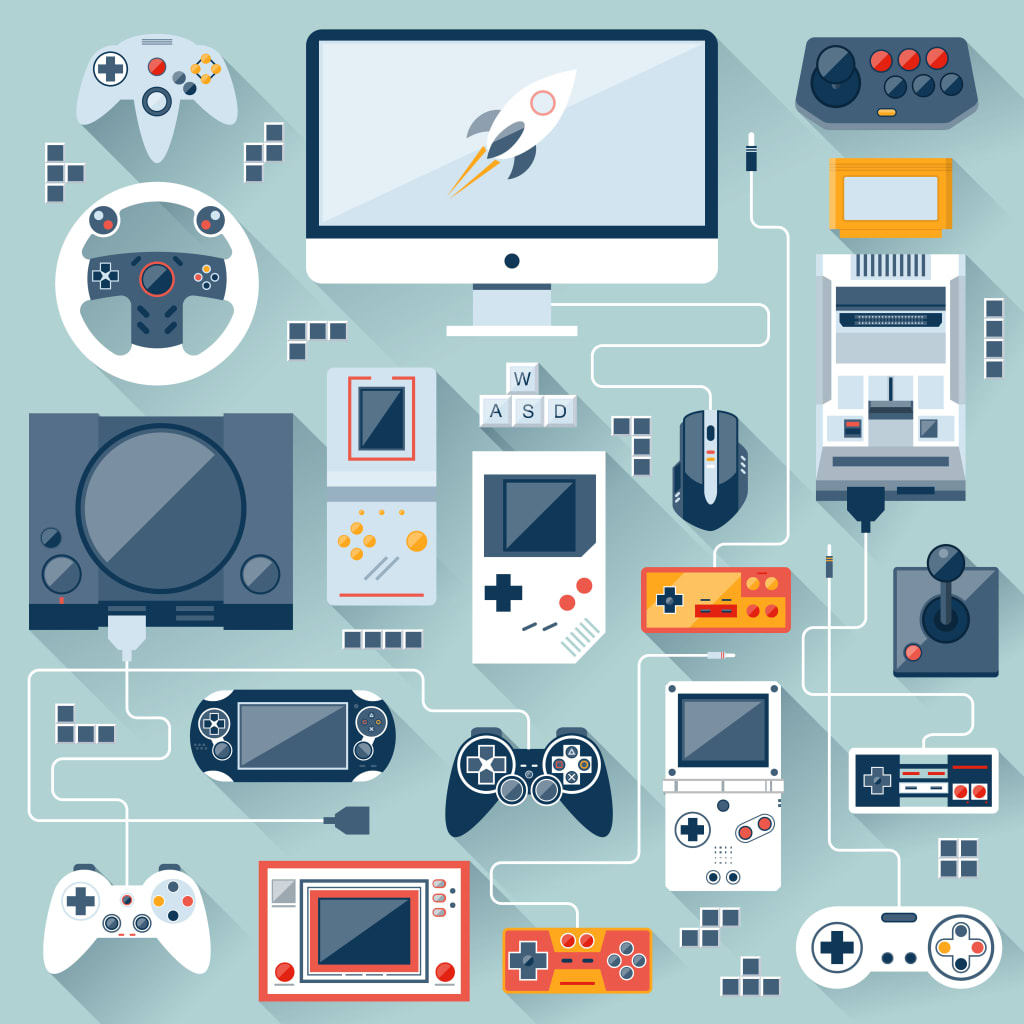The Evolution of Gaming
From Pixels to Virtual Realities

Gaming has come a long way since its inception, transforming from simple pixelated visuals and basic gameplay mechanics to immersive virtual realities and complex narratives. With advancements in technology, gaming has become a mainstream form of entertainment, capturing the attention of millions worldwide. This article explores the evolution of gaming, highlighting its impact on society, the emergence of new genres, and the future possibilities that lie ahead.
The Early Days: From Arcades to Home Consoles
Gaming began its journey in the late 1970s and early 1980s with the rise of arcade machines like Pong and Pac-Man. These simple yet addictive games introduced players to the concept of interactive entertainment. The subsequent release of home consoles such as the Atari 2600 and the Nintendo Entertainment System (NES) brought gaming into households, allowing players to enjoy their favorite titles at their convenience.
Technological Advancements: Graphics, Processing Power, and Connectivity
The gaming industry witnessed significant technological advancements over the years. Improved graphics capabilities, driven by the introduction of 3D rendering and high-definition displays, created more immersive and realistic experiences. The exponential growth of processing power in consoles and PCs enabled developers to create more complex game worlds and sophisticated artificial intelligence. Additionally, the rise of online gaming and multiplayer experiences connected players from around the globe, fostering a sense of community and competition.
The Rise of Mobile Gaming
The advent of smartphones and tablets revolutionized gaming once again. Mobile gaming emerged as a massive industry, accessible to a broader audience. Casual games like Angry Birds and Candy Crush Saga became global sensations, showcasing the potential for quick and engaging experiences on the go. The popularity of mobile gaming led to the development of dedicated gaming smartphones and the rise of esports competitions on mobile platforms.
Gaming as an Art Form: Narrative and Emotional Depth
As technology advanced, gaming evolved beyond simple gameplay mechanics. Storytelling and character development became integral components of modern games, blurring the line between gaming and other narrative-driven mediums like film and literature. Games like The Last of Us, Red Dead Redemption 2, and God of War demonstrated the industry's ability to deliver emotionally impactful narratives, earning critical acclaim and attracting a wider audience.
The Era of Virtual Reality (VR) and Augmented Reality (AR)
Virtual reality and augmented reality have propelled gaming into new dimensions. VR headsets allow players to immerse themselves fully in virtual worlds, providing unparalleled levels of realism and interactivity. Meanwhile, AR technology blends the real world with virtual elements, as demonstrated by the global phenomenon Pokémon Go. These advancements have opened doors to innovative gameplay mechanics and novel experiences, hinting at a future where gaming could reshape various industries, from education to healthcare.
The Future of Gaming: Streaming, Cloud Gaming, and Beyond
The future of gaming holds even more exciting possibilities. Streaming services like Google Stadia and Xbox Cloud Gaming (formerly known as Project xCloud) offer the potential to play high-quality games on various devices without the need for powerful hardware. Cloud gaming could democratize access to gaming and redefine how games are played. Additionally, advancements in artificial intelligence and machine learning could pave the way for more intelligent and adaptive gaming experiences.
3 / 3
In conclusion, the revolution of gaming has had a profound impact on society, technology, and entertainment. Over the past few decades, gaming has evolved from simple pixelated graphics and basic gameplay to immersive and realistic experiences that captivate millions of players worldwide.
One of the most significant revolutions in gaming has been the advancement of technology. From the advent of home consoles like the Atari 2600 and Nintendo Entertainment System to the development of powerful gaming PCs and sophisticated virtual reality systems, gaming has pushed the boundaries of what is possible in terms of graphics, processing power, and interactivity. This technological progress has not only enhanced the visual and auditory aspects of games but has also opened up new avenues for storytelling and player engagement.
The rise of online gaming has brought about another major revolution. Multiplayer experiences have become increasingly prevalent, allowing players from different corners of the globe to connect and compete in virtual worlds. This shift has fostered a sense of community among gamers, creating social networks and friendships that transcend geographical boundaries. Additionally, the rise of esports, organized competitive gaming events, has turned gaming into a professional and lucrative industry, with players and teams competing for substantial prizes and worldwide recognition.
Moreover, gaming has become a mainstream form of entertainment that extends beyond dedicated gamers. The accessibility of mobile gaming has brought millions of casual players into the fold, with games like Angry Birds and Candy Crush Saga reaching unprecedented levels of popularity. The introduction of gaming apps and platforms on smartphones has made gaming a ubiquitous activity, capable of entertaining people during their daily commutes or idle moments.





Comments
There are no comments for this story
Be the first to respond and start the conversation.